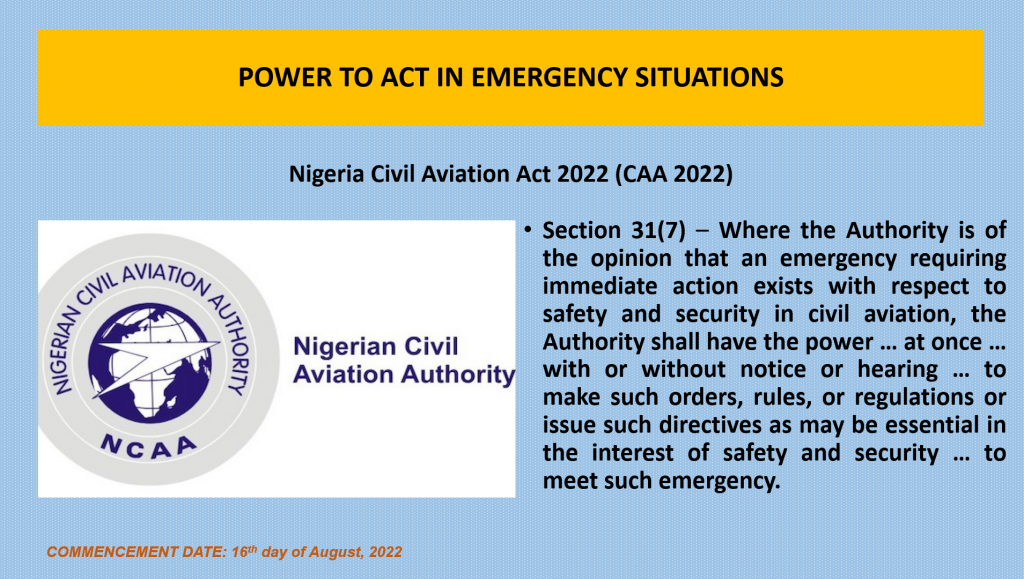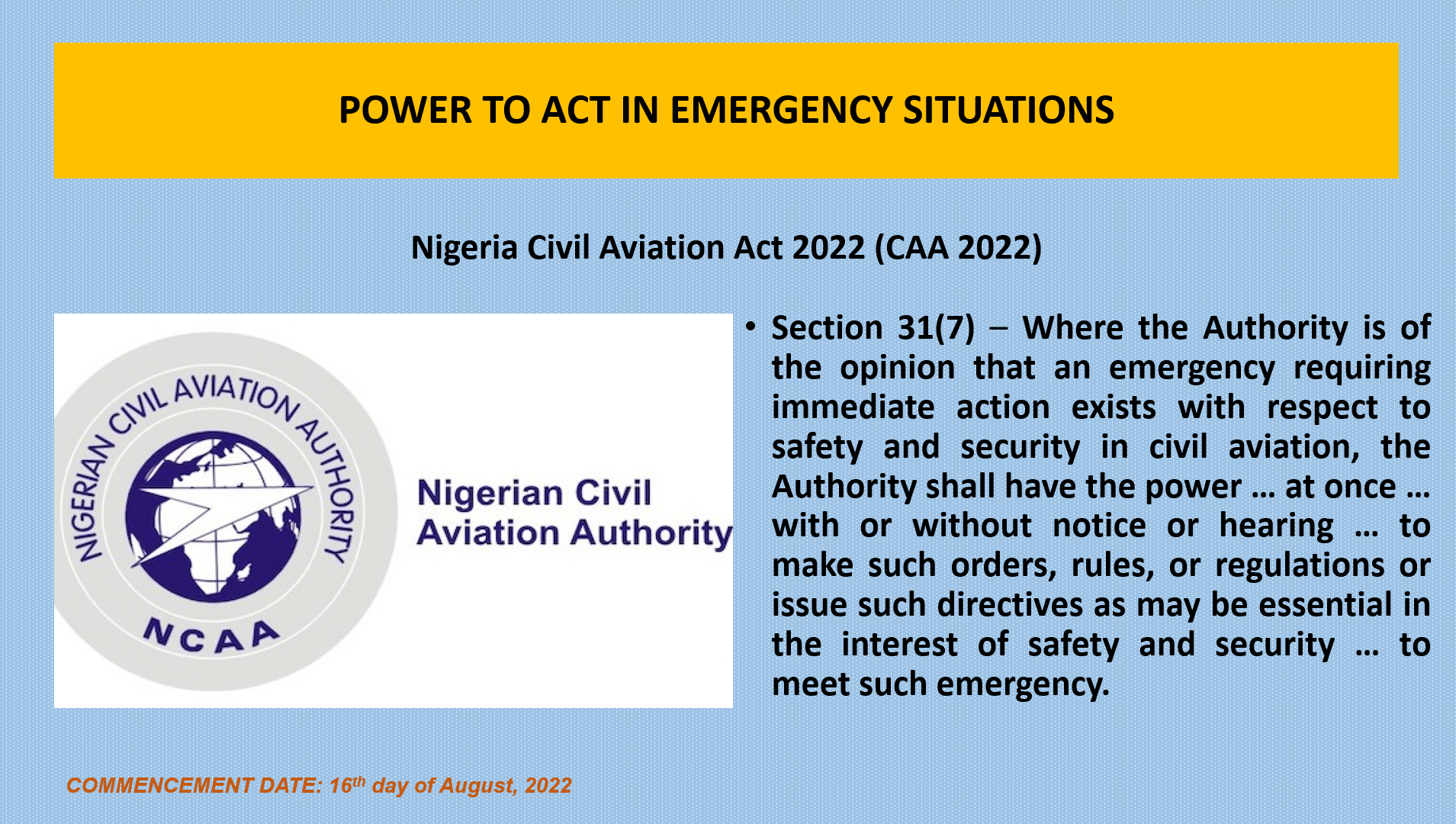
Fostering Growth, Innovation, and Sustainability in Airline Operations
Regardless of public opinion/outcry and alleged victimizations of airlines by #regulatory #authorities, the constitution in #Nigeria has empowered the aviation authority to declare an #emergency without prior notice in any situation that is threatening the safety of life and property in the industry. As much as this appears to be good news for the regulators, it’s also a call for responsibility because they will also be held responsible for all emergencies that are not properly handled.
Within the dynamic realm of aviation safety, Nigeria’s Civil Aviation Act serves as a fundamental legal framework, ensuring the utmost safety and security in the nation’s airspace. Notably, Section 31(7) of this act confers critical authority upon the Nigerian Civil Aviation Authority (CAA) to promptly respond to emergencies related to aviation safety and security.
Understanding Section 31(7): Immediate Action in Emergencies
The specific provision outlined in Section 31(7) delineates the Authority’s capacity to respond decisively when an emergency jeopardizing safety and security arises within civil aviation. It endows the Authority with the immediate power, without the necessity of prior notice or formal hearings, to enact orders, rules, regulations, or directives essential to safeguard safety and security interests during such emergencies.
Advantages of Section 31(7) and Its Implementation in Nigeria
The significance of this provision lies in its ability to address emergent safety and security concerns promptly and effectively. By providing the CAA with the authority to take immediate action without bureaucratic hindrances, this section serves as a vital tool in mitigating potential risks and managing crises within the aviation industry.
Advantages: Swift Response to Emergencies
This section’s advantage is evident in its ability to allow the CAA to respond swiftly to emergencies. Whether it’s a safety breach, a security threat, or any other urgent situation that could compromise aviation safety, the Authority can act decisively, implementing necessary measures without delays that could exacerbate the emergency.
linkedin.com/in/shadrachswantekambai
- Fixing Aviation Surety Bonds in Nigeria
- When Safety Meets the Clock: Why Airlines Can’t Afford to Gamble
- NSIB Hosts 12th BAGAIA Commission Meeting in Abuja
- ✈️ How Commercial Airlines Boost Nigeria’s GDP
- Error Management Techniques in Flight Operations
Advantages: Prioritizing Safety and Security
The provision emphasizes the paramount importance of safety and security within the aviation sector. By enabling immediate action, it underscores the commitment to protecting passengers, crew, and infrastructure by swiftly addressing and mitigating potential risks.
Implementation in Nigeria: Upholding Safety Standards
In practice, this provision enables the CAA to maintain a proactive stance in safeguarding the skies above Nigeria. When faced with emergencies, the Authority can swiftly implement regulations, orders, or directives to address the situation, ensuring that safety and security remain uncompromised.
Conclusion: Strengthening Aviation Safety
Section 31(7) of the Nigerian Civil Aviation Act stands as a testament to the proactive approach taken by the CAA in upholding safety and security in the aviation industry. Its implementation empowers the Authority to act swiftly and decisively in times of crisis, reinforcing Nigeria’s commitment to ensuring the highest standards of safety and security in its airspace. This provision serves as a vital tool, underlining the dedication to mitigating risks and preserving the integrity of the aviation sector within Nigeria.






0 Comments